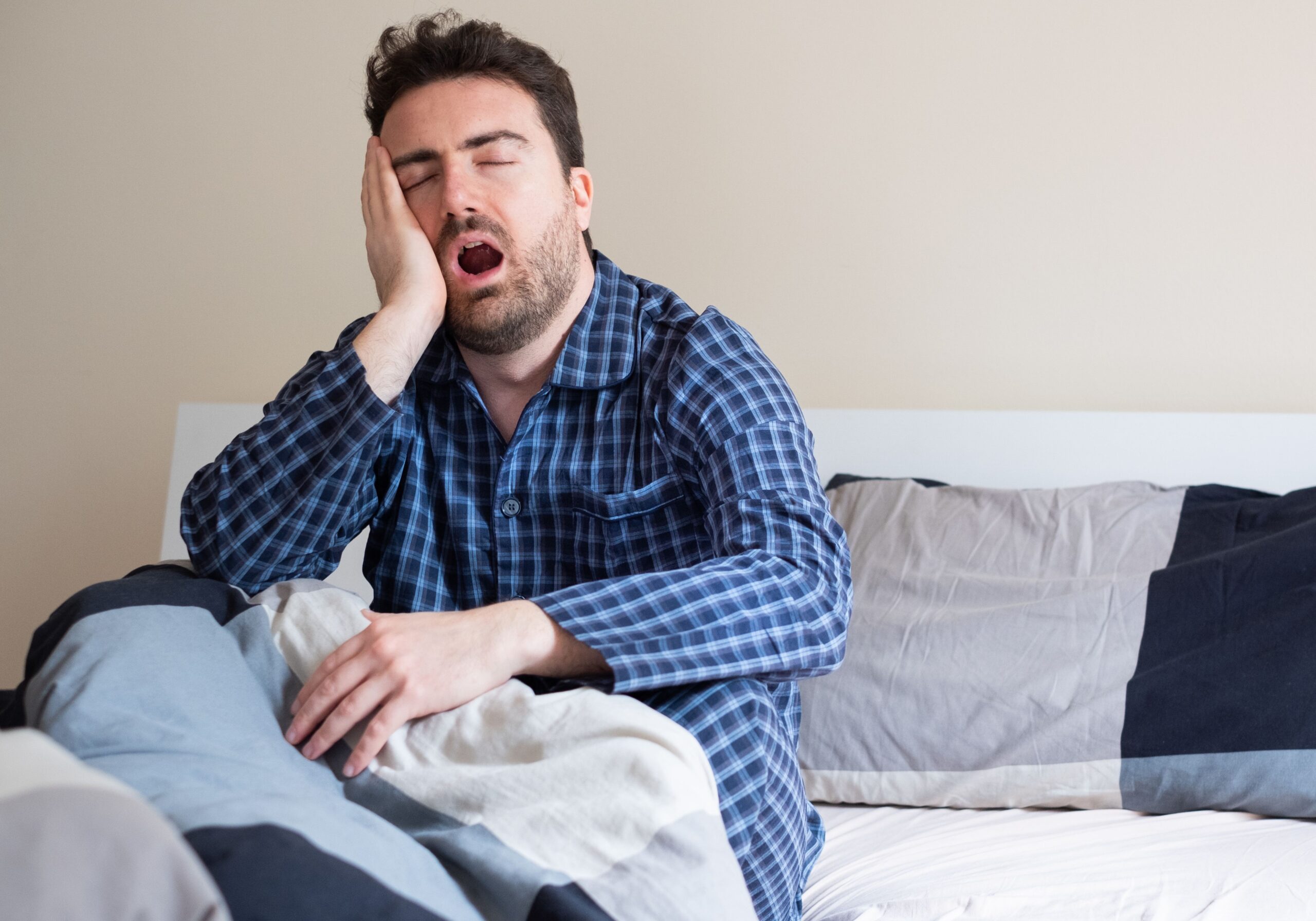7 Surprising Reasons Why You Wake Up Feeling Tired

Are you tired of waking up feeling exhausted every morning, even after a full night’s sleep? You’re not alone. Many people find themselves struggling to find energy and motivation to start their day, wondering why they can’t seem to shake off that tiredness. In this article, we will explore seven surprising reasons why you wake up feeling tired. From the impact of your diet and hydration levels to the quality of your sleep environment, there are various factors that can affect your energy levels upon waking.
By identifying and addressing these underlying causes, you can make simple changes to your daily routine to help you wake up feeling refreshed and ready to take on the day. Get ready to discover the secrets to a restful night’s sleep and ensure you wake up energized and revitalized each morning.
What Are the Common Reasons for Fatigue in the Morning
Feeling tired and fatigued in the morning can be a frustrating way to start your day. Understanding the common causes of morning fatigue can help you identify potential factors that may be affecting your energy levels. From sleep-related issues to lifestyle factors, here are some of the common reasons that can contribute to morning tiredness;
1. Lack of Quality Sleep
A lack of quality sleep is one of the most common reasons for waking up feeling exhausted. This can be due to a variety of factors, such as sleep apnea, snoring, restless leg syndrome, or simply not getting enough sleep. While getting the recommended 7-9 hours of sleep each night is important, the quality of your sleep is equally important. Poor sleep quality can leave you tired and groggy in the morning, even if you’ve spent the recommended amount of time in bed.
There are several factors that can contribute to poor sleep quality. One common culprit is an uncomfortable mattress or pillow. If your mattress is old and worn or your pillow doesn’t provide adequate support, it’s time to invest in new bedding that will help you sleep better. An unsupportive sleep environment, such as excessive noise or a room that’s too hot or cold, can also disrupt your sleep.
Another factor that can affect the quality of your sleep is using electronic devices before bedtime. The blue light emitted by smartphones, tablets, and computers can interfere with your body’s natural sleep-wake cycle, making it difficult to fall asleep and stay asleep. To improve your sleep quality, create a bedtime routine that involves turning off electronic devices at least an hour before bed and engaging in relaxing activities like reading or taking a warm bath.

2. Poor Sleep Habits
In addition to a lack of quality sleep, poor sleep habits can also contribute to waking up feeling exhausted. A consistent sleep schedule regulates your body’s internal clock and promotes healthy sleep patterns.
Going to bed and waking up at the same time every day, even on weekends, can help improve the quality of your sleep and reduce morning fatigue. Avoiding naps during the day, especially in the late afternoon or evening, can also help regulate your sleep-wake cycle and ensure you feel tired when it’s time to go to bed.
Another common sleep habit that can disrupt your sleep and leave you feeling tired in the morning is consuming caffeine and alcohol close to bedtime. While caffeine is a stimulant that can interfere with sleep, alcohol may help you fall asleep initially but can disrupt your sleep later at night. To improve your sleep habits, limit your caffeine intake, especially in the afternoon, and avoid alcohol close to bedtime.
Creating a relaxing bedtime routine can also help signal your body that it’s time to sleep. Engaging in activities like reading, taking a warm bath, or practicing relaxation techniques can help calm your mind and prepare your body for sleep.
3. Sleep Disorders
Sometimes, waking up exhausted is more than just a result of poor sleep habits or a lack of quality sleep. Sleep disorders can also play a significant role in morning fatigue. Sleep apnea and restless leg syndrome are two common sleep disorders that can leave you feeling tired even after a full night’s sleep.
Sleep apnea is a condition characterized by pauses in breathing during sleep, often accompanied by loud snoring or gasping for air. These pauses can disrupt your sleep and prevent you from reaching the deep, restorative stages of sleep. If you suspect you may have sleep apnea, it’s important to consult with a healthcare professional who can provide a proper diagnosis and recommend appropriate treatment.
On the other hand, restless leg syndrome is a neurological disorder that causes uncomfortable sensations in the legs, often described as a “creepy-crawly” or “itchy” feeling. These sensations can make it difficult to fall asleep and stay asleep, resulting in morning fatigue. Treatment options for restless leg syndrome include lifestyle changes, medications, and relaxation techniques.

4. Stress and Anxiety
Mental health issues such as stress and anxiety can also cause morning fatigue. These conditions can lead to poor sleep quality and disrupt the body’s natural sleep-wake cycle. When you’re feeling stressed or anxious, it can be challenging to relax your mind and body, making it difficult to fall asleep and stay asleep.
Stress activates the body’s “fight or flight” response, releasing hormones like cortisol that can interfere with sleep. Additionally, anxious thoughts and worries can keep your mind racing, making it hard to quiet your thoughts and drift off into a peaceful sleep.
It’s important to incorporate relaxation techniques into your daily routine to manage stress and anxiety. Practices like deep breathing, meditation, and yoga can help calm your mind and relax your body, making it easier to fall asleep and wake up feeling refreshed.
Creating a bedtime routine that includes these relaxation techniques can signal to your body that it’s time to wind down and prepare for sleep. Consider keeping a journal by your bedside to write down any worries or thoughts that may keep you awake. Putting your concerns on paper can help clear your mind and promote a sense of calm.
5. Nutritional Deficiencies
Believe it or not, what you eat can also impact how you feel in the morning. Nutritional deficiencies can leave you feeling tired and lacking energy, even after a full night’s sleep. Iron and vitamin D are two common deficiencies that can contribute to morning exhaustion.
Iron is essential for producing red blood cells, which carry oxygen throughout the body. Without enough iron, your body may struggle to transport oxygen efficiently, leading to feelings of fatigue. Incorporating iron-rich foods into your diet, such as lean meats, legumes, and dark leafy greens, can help boost your iron levels and improve your energy levels.
Vitamin D, often referred to as the “sunshine vitamin,” plays a crucial role in energy production. Spending time outdoors and getting sunlight exposure can naturally help your body produce vitamin D. However, if you live in a location with limited sunlight or spend most of your time indoors, you may be at risk of vitamin D deficiency. Consider incorporating vitamin D-rich foods into your diet, such as fatty fish, fortified dairy products, and egg yolks, or talk to your healthcare provider about vitamin D supplements.
In addition to iron and vitamin D, it’s important to maintain a well-balanced diet that includes a variety of fruits, vegetables, whole grains, and lean proteins. Avoiding excessive sugar and processed foods can also help stabilize your energy levels throughout the day.
6. Sedentary Lifestyle
Leading a sedentary lifestyle can also contribute to morning exhaustion. Regular physical activity is not only essential for maintaining overall health but also for promoting quality sleep.
Regular exercise, even if it’s just a brisk walk or gentle yoga, can help regulate your sleep-wake cycle and improve the quality of your sleep. Exercise releases endorphins, which are natural mood boosters that can help reduce stress and anxiety, promoting a more restful night’s sleep.
Incorporating physical activity into your daily routine can also help increase your energy levels throughout the day. When you’re physically active, your body produces more energy, making you feel more awake and alert in the morning. If you find it challenging to fit exercise into your schedule, consider incorporating small bursts of activity throughout the day, such as taking the stairs instead of the elevator or going for short walks during your breaks.
Remember, it’s important to consult with a healthcare professional before starting any new exercise program, especially if you have any underlying medical conditions or concerns.
7. Medical Conditions
Lastly, certain medical conditions can contribute to morning exhaustion. Conditions such as hypothyroidism, anemia, and chronic fatigue syndrome can all cause feelings of fatigue upon waking.
Hypothyroidism occurs when the thyroid gland doesn’t produce enough thyroid hormone responsible for regulating metabolism and energy levels. Anemia is a condition characterized by a lack of red blood cells or hemoglobin, which can result in decreased oxygen transport and feelings of fatigue. Chronic fatigue syndrome is a complex disorder characterized by excessive fatigue that can’t be explained by any underlying medical condition.
If you suspect that an underlying medical condition may be causing your morning exhaustion, it’s important to seek medical advice and get the necessary testing and treatment. Addressing the underlying condition can significantly improve your energy levels and overall well-being.
Why Your Sleep Environment Matters More than You Think
Despite getting the prescribed 7-9 hours of sleep, do you still wake up feeling drained? Well, your sleep environment might be the undercover culprit robbing you of your sleep. Let’s dive into why it matters more than you think.
- It’s all about the ambiance: Imagine trying to sleep in a noisy, brightly-lit room. Sounds like a nightmare, right? That’s because your sleep environment directly affects the quality of your sleep.
- Temperature troubles: If you’re waking up tired, it might be because your room is too hot or too cold. Your body loves a cool environment for sleep; that’s why you always feel relaxed when you leave one leg out of the blanket.
- The Problem with Blue Light: Our gadgets are practically part of our anatomy these days, but the blue light they emit can mess with our sleep cycle. Consider a digital curfew to give your body time to wind down before sleep.
- Allergens and Air Quality: Believe it or not, the air quality in your room can impact your sleep. Dust mites and allergens can cause respiratory problems, disrupting your sleep and leaving you tired in the morning.
- Your Mattress and Pillow Matter: Still sleeping on that old spring mattress? It might be time for an upgrade. The right mattress and pillow can make a world of difference to your sleep quality.

How Your Diet Could Be Affecting Your Sleep Quality
Have you ever wondered if what’s on your plate could be why you’re yawning more than a bored cat at a dog show? Spoiler alert: it can! Your diet plays a more significant role in your sleep quality than you might realize.
- Too Much Caffeine: Most of us are guilty of relying on that morning cup of Joe to kick-start our day. However, consuming too much caffeine, especially later in the day, can interfere with your ability to fall asleep. It’s like having a rock band in your brain when all you want is a lullaby.
- Heavy Evening Meals: Ever tried running with a full backpack? That’s how your stomach feels when you have a big dinner just before bedtime. This can lead to discomfort and indigestion, making it harder for you to sleep.
- Sugar: Yes, that late-night ice cream may taste like a spoonful of heaven. But, too much sugar can cause varying energy levels and disrupt your sleep cycle. It’s like a rollercoaster ride when all you want is a calm sail.
- Alcohol, The False Friend: While a nightcap might help you fall asleep faster, it actually disrupts the quality of your sleep. It’s like a friend who helps you start a puzzle but messes it up halfway through. Not cool, alcohol. Not cool.
So, try adjusting your diet to see if it improves your sleep. Small changes can lead to big zzz’s. And remember, a well-rested you is the best you!
Tips for Improving Sleep and Reducing Morning Exhaustion
Now that we’ve explored the seven surprising reasons why you wake up feeling exhausted every morning, let’s discuss some practical tips for improving your sleep and reducing morning exhaustion:
- Establish a consistent sleep schedule by going to bed and waking up at the same time every day, even on weekends.
- Create a relaxing bedtime routine that includes reading, taking a warm bath, or practicing relaxation techniques.
- Ensure your sleep environment is comfortable, quiet, and conducive. Consider investing in a comfortable mattress and pillow and addressing any disruptive factors, such as excessive noise or temperature fluctuations.
- Limit your caffeine intake, especially in the afternoon, and avoid alcohol close to bedtime.
- Incorporate regular physical activity into your daily routine, even if it’s just a short walk or gentle yoga.
- Manage stress and anxiety through relaxation techniques like deep breathing, meditation, or yoga.
- Maintain a well-balanced diet that includes a variety of fruits, vegetables, whole grains, and lean proteins, and address any nutritional deficiencies through dietary changes or supplements.
By implementing these tips and addressing the underlying causes of your morning exhaustion, you can significantly improve your sleep quality and overall energy levels. Remember, being patient with yourself as you make these changes is important. It may take time for your body to adjust, but with consistency and dedication, you can wake up feeling refreshed and ready to take on the day.
Bottom Line
Waking up feeling exhausted every morning can be frustrating and impact the rest of your day. However, by identifying and addressing the underlying causes of morning exhaustion, you can make simple changes to your daily routine to help you wake up refreshed and energized.
Various factors can contribute to morning fatigue, from ensuring quality sleep and establishing healthy sleep habits to managing stress and anxiety and addressing nutritional deficiencies. Using some tips discussed in this article and seeking professional advice when necessary, you can take control of your sleep and start each day feeling revitalized and energized.






